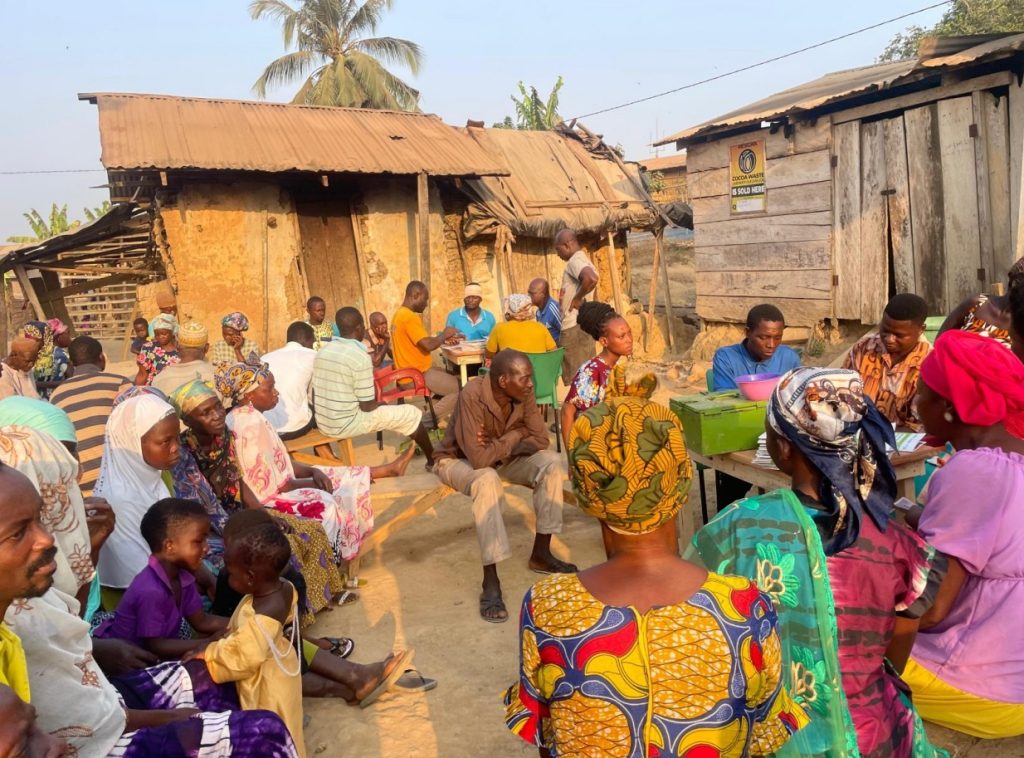Leaders of Village Savings and Loan Associations (VSLAs) in Ghana’s Wassa Amenfi West Municipal have received financial literacy and governance training under a cocoa sustainability initiative aimed at boosting rural livelihoods and promoting responsible sourcing.
As part of the ongoing Wassa Amenfi Cocoa Landscape Initiative (WACLI), 29 leaders from VSLAs in the municipality completed intensive training in financial management, record-keeping, budgeting, and effective group governance.
The self-managed, community-based savings groups were formed through WACLI, a project funded by the Danida Green Business Partnerships under the Danish Ministry of Foreign Affairs. The initiative seeks to diversify incomes and strengthen the economic resilience of cocoa-farming communities.
The training was introduced following a baseline study that revealed financial literacy challenges among local farmers and traders. Many struggled to track income, calculate profits, or make informed financial decisions.

Mr. Victor Anasara Abugre, Project Officer at Rikolto Ghana, which is implementing the VSLA component of WACLI, outlined the training’s focus at a recent partners’ meeting.
“We trained 29 VSLA leaders in financial literacy after the baseline study showed that many people couldn’t track what they invested, lost, or earned,” he said. “We covered income and expense tracking, profit and loss calculation, budgeting, and record-keeping. The idea is for the trained leaders to pass these skills on to their group members, ultimately benefiting entire communities.”
He added that the training also covered leadership, group dynamics, conflict management, and data collection to help strengthen self-governance and accountability.
“The goal is not only financial awareness but stronger group governance that can support agribusiness and entrepreneurship through better access to capital,” Mr. Abugre said.
He also announced plans to introduce dry-season vegetable farming to supplement farmer incomes during off-peak cocoa seasons.
“Many farmers face a lack of income during the dry season. By helping them grow vegetables for personal use and sale, we aim to improve both food security and household earnings,” he added.
Launched in 2023, the WACLI Ghana Project aims to combat deforestation and poverty associated with cocoa farming. The project promotes a responsible sourcing model tailored to cocoa communities, while enhancing ecosystem services and climate resilience.
By focusing on the Wassa Amenfi Cocoa Landscape, the initiative seeks to transform cocoa agroforestry systems and create sustainable on- and off-farm revenue streams.
Dr. Richard Asare, Project Consultant and Country Representative of the International Institute of Tropical Agriculture (IITA), said the VSLA model has the potential to significantly improve rural livelihoods.
“If we can demonstrate that this model works, it can be scaled up for adoption by banks and other private institutions,” he said. “The goal is to build stronger local financial systems and create sustainable economic empowerment pathways for rural communities.”
The meeting was attended by representatives from implementing and administrative partners including Touton S.A., Rikolto Ghana, Solidaridad West Africa, IITA, and Preferred by Nature.
Preferred by Nature is a global non-profit organisation that supports sustainability in agriculture, forestry, and trade. It provides certification services, training, and advisory support to help businesses implement responsible sourcing practices and reduce environmental impact.
DISCLAIMER: The Views, Comments, Opinions, Contributions and Statements made by Readers and Contributors on this platform do not necessarily represent the views or policy of Multimedia Group Limited.
DISCLAIMER: The Views, Comments, Opinions, Contributions and Statements made by Readers and Contributors on this platform do not necessarily represent the views or policy of Multimedia Group Limited.


